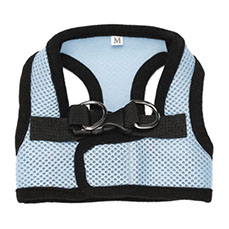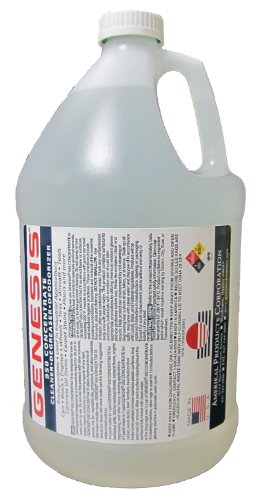
The “dog” days of summer are upon us! Summer is a time for lots of fun outdoor activities, but with this season comes a number of pesky parasites that we need to protect our pets from! This article is the first in a series about the parasites that are especially prevalent in the summer months.
Heartworms are a parasitic infection that, while easily preventable, can prove to be a very serious condition in animals if the proper precautions are not taken. While some geographic regions of the country are more prone to outbreaks of the disease (warmer areas with larger mosquito populations), cases of heartworm have been found in virtually all parts of the United States and Canada. Heartworm infection can affect both cats and dogs, although it is much more common in canines.
As you would expect, adult heartworms live in blood vessels of the right side of the affected animal抯 heart. Adult heartworms reproduce there- their larvae are called microfilaria- and the larvae circulate in the animal's blood.
Heartworms are transmitted when a mosquito feasts on an infected pet. During its blood meal it sucks out microfilaria. After about two weeks of incubation inside a mosquito, the microfilaria become infective larvae. At this point, when the mosquito bites another pet, the infective larvae are passed on to that animal through the bite. The infective larvae then move through the tissues of the body for approximately three months. When they reach adult size, they enter the heart.
Cause and effect: Now that we know the lifecycle of these yucky guys, you抮e probably wondering exactly what heartworm infestation does. Once dogs accumulate larger numbers of adult heartworms, blood circulation can be impaired, resulting in serious damage to the vital organs (heart, lungs, liver, and kidneys). Dogs can be infected with heartworms but appear healthy for a good amount of time; this isn抰 to say that damage isn抰 being done internally during that time. While some dogs can lead fairly normal lives with a few heartworms in their systems, in its advanced stages, the disease can cause difficulty breathing, coughing, exhaustion, and weight loss. If left untreated, heartworm disease can lead to congestive heart failure and eventual death.
Hide and Seek: A routine blood test can detect heartworms in early stages. I worked in a non-profit clinic in Florida where I would routinely see 4-5 heartworm-positive dogs a day. A drop of blood under a microscope and a trained eye was all it took to see microfilaria swimming on the screen. A 搒nap?test would confirm the diagnosis. On rare occasions, a dog will have adult heartworms but no microfilaria. In those cases a radiograph and other blood work are needed to confirm an infection.
Treatment: The good news is that if detected early, most dogs can be treated effectively. The adult worms are killed with a series of an injectable arsenical drug. A few days after treatment, the dead worms lodge in small blood vessels and stay there decomposing for the next few months. After receiving treatment, a dog must be kept calm and quiet to prevent damage to the lungs from the decomposing worms. He can resume normal activity, slowly, about a month after the treatment. Once the adult heartworms are killed, another drug is used to eliminate the microfilaria, which are not affected by the same drug used to kill the adults.
Heartworm treatment can be risky for the patient; your dog should always have a complete physical exam before it begins. That includes a full panel of blood work as well as chest radiographs.
Preventing heartworm infection is as easy as marking your calendar once a month! Veterinarians have developed many medications that, when given monthly, keep the infective larvae from developing into adult worms. Before starting your dog on prevention (unless you have a young puppy), your vet will take a blood sample to make sure your pet is not already infected with heartworms. While some people are comfortable giving their pet a preventive from early spring until the winter, I personally believe that year round coverage is the best (and safest!) way to go! Obviously this is a must in high mosquito areas or for dogs that spend a great amount of time outside.
There are a variety of products you can use on your pet: Heartgard, Interceptor, and are chewable pills. Sentinel is made by the same company as Interceptor, but also kills fleas. Revolution is a topical treatment applied between the shoulder blades on your dog抯 back. Each of these treatments offers additional protection against other common issues (fleas, etc.), varying by medication, so you have options based on your specific environment.
 Is it a Dog or a Bear?
For large dog breed lovers t
Is it a Dog or a Bear?
For large dog breed lovers t
 How Service Dogs Can Be A Godsend For Children With Autism
Assistance Dogs for Children
How Service Dogs Can Be A Godsend For Children With Autism
Assistance Dogs for Children
 Fabulous Fashion For Your Puppy
Pet clothing is a flourishing industry; more and more p
Fabulous Fashion For Your Puppy
Pet clothing is a flourishing industry; more and more p
 Puppy Potty Training Carpet Cleaning Tips
Potty Training A PuppyHow To
Puppy Potty Training Carpet Cleaning Tips
Potty Training A PuppyHow To
 Why Do Dogs Howl?
Credit: Soggydan via Flickr
Why Do Dogs Howl?
Credit: Soggydan via Flickr
Copyright © 2005-2016 Pet Information All Rights Reserved
Contact us: www162date@outlook.com